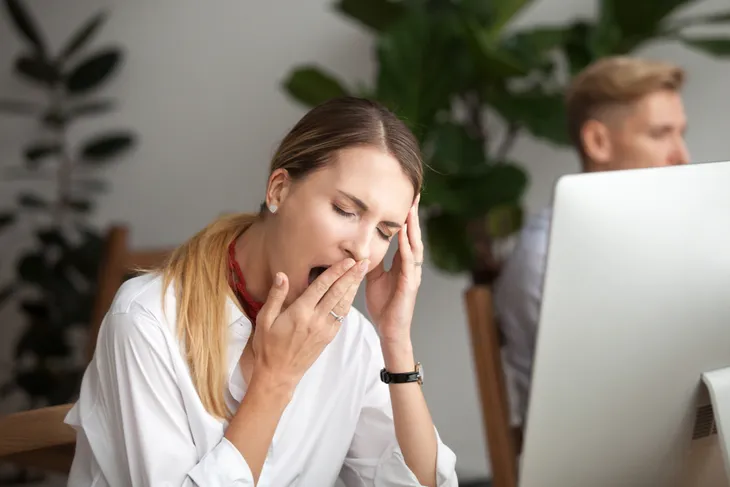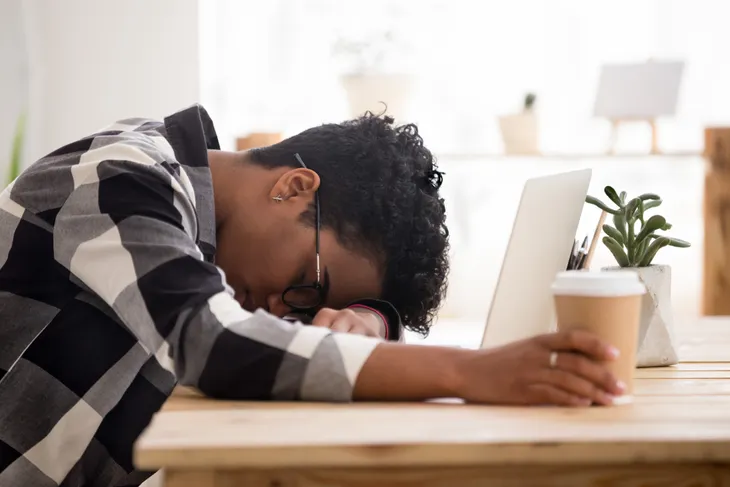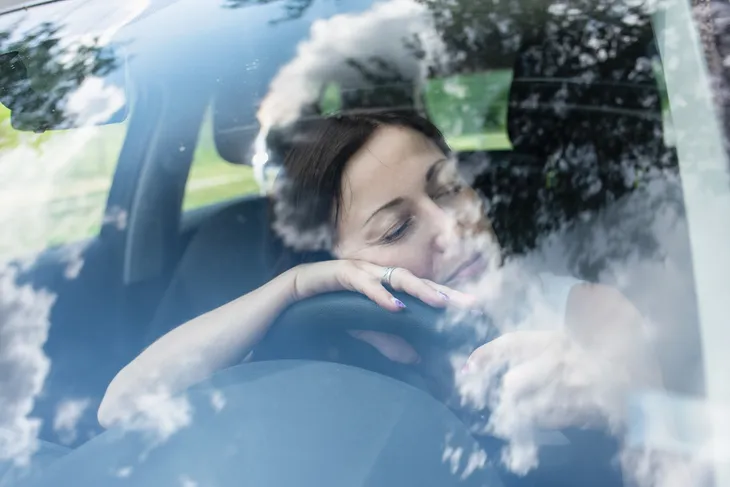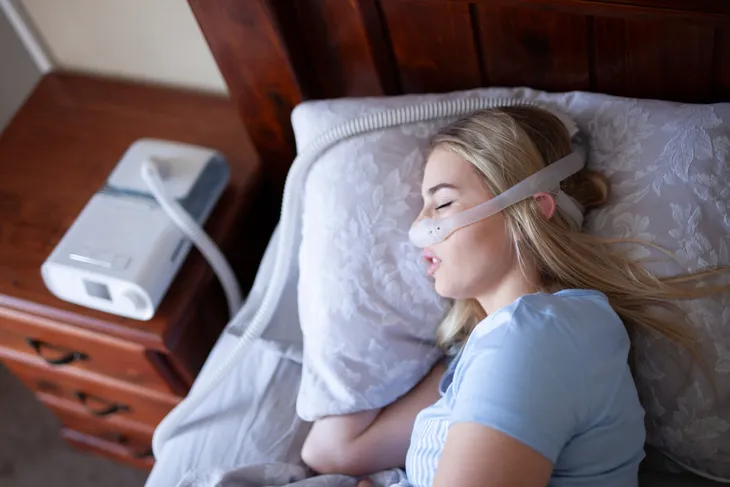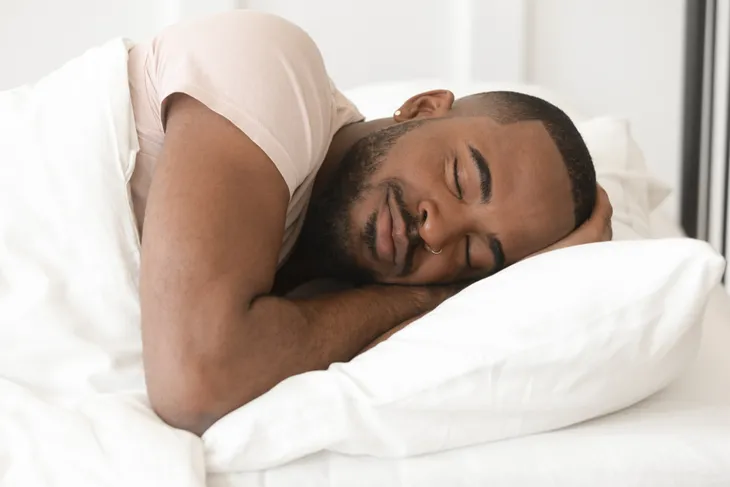Although most of us understand the importance of sleep, many of us still don’t reach the recommended amount. Between busy schedules, stress, and a long to-do list, many contributing factors can cause us to miss out on that much-needed sleep. If you find yourself in a zombie-like state, we mean tiredness, brain fog, and mood changes, you might be suffering from sleep deprivation. It’s more common than you may think, too!
What Is Sleep Deprivation?
Sleep deprivation is a major problem that affects around one-third of American adults, says the Sleep Foundation. It’s “a problem that has only worsened in recent years,” continues the source. So, what is sleep deprivation exactly?
In short, sleep deprivation is defined as not getting adequate total sleep. Sleep deprivation can lead to fatigue, daytime sleepiness, weight gain or loss, and can negatively impact the body in a variety of ways. Not getting adequate sleep can also take a toll on your day-to-day life affecting work, school, and your ability to function.
The Different Types of Sleep Deprivation
Sleep deprivation can be broken down into three categories depending on your circumstances. The first category is acute sleep deprivation. This essentially means you may experience sleep deprivation for a short period (usually only a few days or less).
In contrast, chronic sleep deprivation (also referred to as insufficient sleep syndrome) persists for 3-months or longer. The final type is chronic sleep deficiency or insufficient sleep, which “can describe ongoing sleep deprivation as well as poor sleep that occurs because of sleep fragmentation or other disruptions,” says the Sleep Foundation.
Is Insomnia and Sleep Deprivation the Same Thing?
Now, you might be wondering, if sleep deprivation is defined as not getting adequate total sleep wouldn’t that mean it’s essentially the same thing as insomnia? The answer is, no. While they seem similar as they both involve failing to get enough sleep, there is a clear distinction between the two.
Individuals who suffer from insomnia “have trouble sleeping even when they have plenty of time to sleep,” says the Sleep Foundation. Whereas individuals suffering from sleep deprivation don’t have enough time to sleep due to everyday obligations (work, school, etc) or behavior choices.
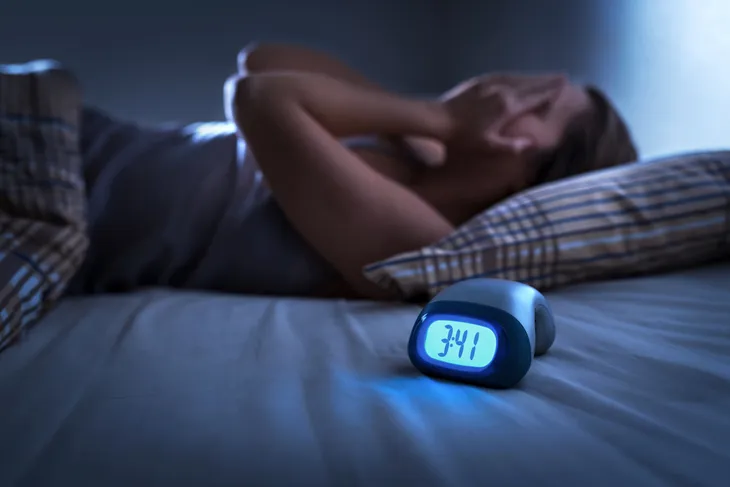 Tero Vesalainen / Shutterstock
Tero Vesalainen / ShutterstockCommon Symptoms of Sleep Deprivation
If you know you’re not getting enough adequate sleep, then chances are you’re experiencing sleep deprivation. But the most common sign of sleep deprivation is excessive daytime sleepiness and impairment. This means you may have reduced concentration, memory, and attention span. Some individuals are so tired they microsleep which means they doze off for a few seconds.
Other telling signs of sleep deprivation include mood changes, including irritability, anxiety, and stress. Your symptoms will vary depending on the extent of your sleep deprivation, as well as whether it’s acute or chronic.
How It Affects the Body
Sleep deprivation may seem harmless short-term but its long-term effects can take a serious toll on your physical and mental health. For starters, sleep deprivation can lead to weight gain or loss. It can also weaken your immune system making you more susceptible to illness.
The Sleep Foundation lists various other health concerns which are linked to sleep deprivation. This includes cardiovascular disease, diabetes, hormone abnormalities, pain, and mental health disorders. As you can see, sleep plays a fundamental role in keeping us healthy and helping our bodies function as they should. This is why you must get it under control.
The Risks
The long-term effects aren’t the only risks you need to be mindful of. There are serious short-term risks too. For example, sleep deprivation can limit your ability to pay attention, can hinder your reaction time, and reduce your ability to make decisions. This is a huge concern, especially when driving or operating machinery.
Sleep deprivation doesn’t just affect you. It can impact those around you too. Did you know about one in 25 adults in the U.S. have fallen asleep at the wheel in the last month? In fact, drowsy driving is responsible for up to 6,000 fatal crashes that occur each year.
Causes of Sleep Deprivation
Many contributing factors can cause sleep deprivation. From busy work schedules and lifestyle choices to poor sleep hygiene and medical conditions.
Personal choices are the most common cause. The Sleep Foundation points out that acute sleep deprivation is often caused by a personal choice to stay up late and binge TV, or by following an inconsistent sleep schedule. A busy work schedule is also one of the most common contributors to chronic sleep deprivation, especially for people who work multiple jobs or extended hours.
Medical Conditions That Cause Sleep Deprivation
Along with your lifestyle, there are a variety of medical conditions that can lead to sleep deprivation. For starters, mental health disorders such as general anxiety disorder may interfere with your quality of sleep and may lead to sleep deprivation.
Further, certain sleep disorders, such as sleep apnea may also contribute. This is a breathing disorder that causes you to wake up many times during the night. If you suspect a medical condition may be causing sleep deprivation, make sure you book an appointment with your doctor.
Treatment Options
If you think you’re suffering from sleep deprivation, book an appointment with your doctor. To diagnose sleep deprivation, your doctor will discuss your symptoms and sleep patterns. Keeping a sleep diary can provide your doctor with detailed information.
The good news is that sleep deprivation is treatable. Speaking with your doctor is a great first step. From there, your doctor will recommend the best treatment option for you. Some treatment options include lifestyle changes, therapy, and in some cases, medication. Let’s take a closer look at these next.
Therapy
Cognitive behavior therapy (CBT) may be a helpful form of therapy for sleep deprivation. This therapy can help you identify thought patterns that contribute to your lack of sleep.
Relaxation techniques may be able to help too. This includes meditation, breathing exercises, and practicing mindfulness. You can practice relaxation techniques on your own, with the guidance of a sleep app, or with a trained professional.
Medication
Medical News Today says some over-the-counter (OTC) medications may be able to help you get adequate sleep. Some of these include diphenhydramine (Benadryl) or doxylamine (Unisom).
If OTC medications aren’t effective, your doctor may prescribe medication such as zolpidem (Ambien), butabarbital (Butisol), or temazepam (Restoril). If you have an underlying medical condition that is causing sleep deprivation your doctor will treat that. It’s important that you follow your doctor’s recommendations and instructions as treatment can vary from person to person.
Lifestyle Changes
A few lifestyle adjustments can help you get a better night’s sleep. For starters, try your best to have a consistent sleep schedule. This means going to bed and waking up at the same time every day, as well as allocating enough time to get adequate sleep.
To prevent disrupted sleep, you should make a bedtime routine that helps you get relaxed and in the right mindset before sleep. This could include taking a warm bath, stretching, reading, or anything else you find relaxing.
Finally, it’s so important that you set boundaries in both your work and social life. This will help prevent your personal and professional life from interfering with your sleep time.
How Much Sleep Do We Really Need?
Now that we know what sleep deprivation is, how much sleep do we need anyway? The right amount of sleep will vary from person to person but in general, the Centers for Disease Control and Prevention (CDC), recommends that adults obtain at least 7-hours of sleep (or more).
According to the CDC here’s how much sleep each age group should aim for:
- Newborns (0 to 3-months) require 14 to 17-hours of sleep.
- Infants (4 to 12-months) require 12 to 16-hours of sleep (including naps).
- Toddlers (1 to 2-years) require 11 to 14-hours of sleep (including naps).
- Preschool (3 to 5-years) requires 10 to 13-hours of sleep (including naps).
- School-age (6 to 12-years) require 9 to 12-hours of sleep.
- Teens (13 to 18-years) require 8 to 10-hours of sleep.
- Adults (18 to 60-years) require 7 or more hours of sleep.
- Adults (61 to 64-years) require 7 to 9-hours of sleep.
- Adults (65-years and older) require 7 to 8-hours of sleep.

